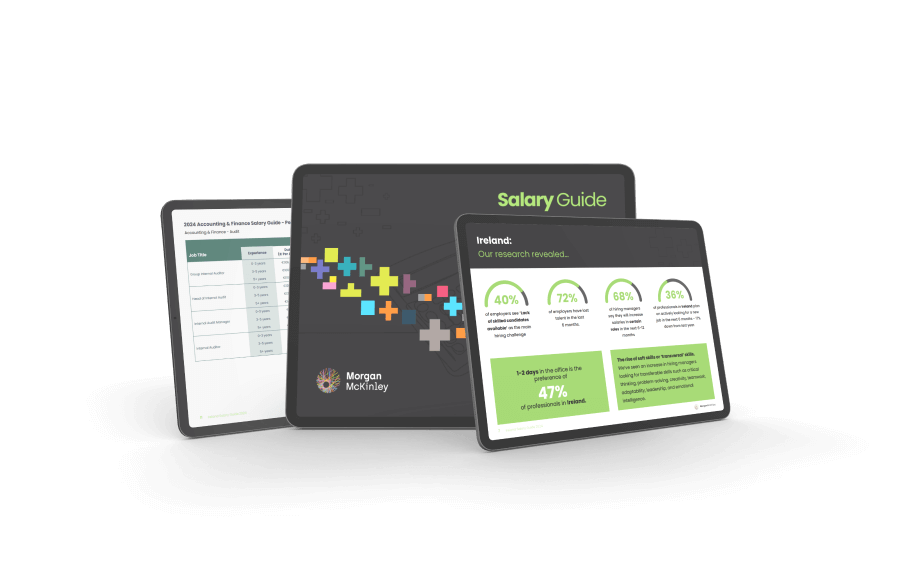Explore salary benchmarks.
Find out how much you should be paying your employees or how much you could be earning this year based on industry benchmarks.
How to be successful in the evolving talent landscape.
We gathered insights about various hiring and workplace trends from over 2751 professionals and 530 employers/hiring managers globally. The findings will help shape your talent strategy for 2025. In Australia…
Money is the main motivator when moving jobs.
69% of professionals outlined ‘salary’ as their most valued factor when looking to move roles. Unsurprising, but important to remember when making offers.
Don’t disregard flexibility.
41% of professionals outlined ‘1 or 2 days’ in the office as their preference of working patterns. Has the way we work changed irreversibly?

Discover salaries.
Explore salary data across the following areas of expertise.
Download your Salary Guide for 2025.
Salary data, insights and advice to guide your talent strategies. Benchmark what you are paying your teams against the industry averages for roles in your location.

Frequently asked questions.
The average salary in Australia is above $90,000. Full-time workers in Australia on average make $1769.80 a week, equating to $92,029.60 a year (pre-tax).
Simply type in the job title you wish to search and click ‘Compare Salary’.
The salaries in this guide have been compiled using data from thousands of placements over the past year and insights from our teams of expert recruitment consultants.
The salary bandings within this guide will be updated if and when needed to reflect any market changes throughout the year to help.
'Competitive salary' means that the business is offering a salary that can compete with what the market salary rate is for the advertised role and/or offer a higher salary.
You can ask “What would the company typically pay for this role?" as sometimes, if you lay all your cards on the table and outline your salary expectations, you risk being screened out of the process. This can happen if in the job description the compensation is highlighted as ‘competitive’.
They will then either give a range or provide more details about the position and then ask the question again, at which point you can make a more informed call.
Our article on 'How to answer salary expectation questions' provides more tips on how to answer the 'expected salary' question.



